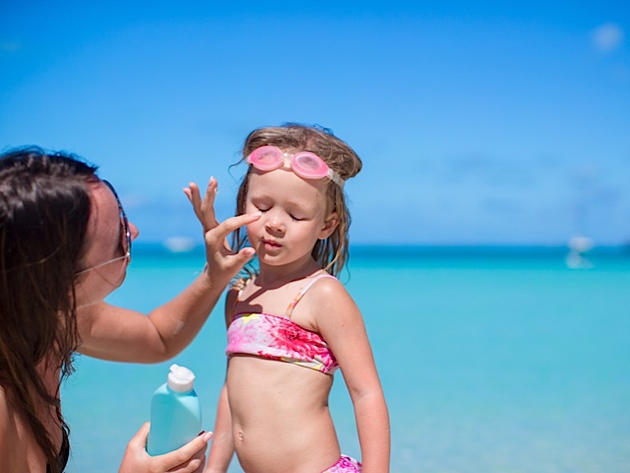
It was good advice in 1997 and remains so today.
Nearly two decades ago, Chicago Tribune columnist Mary Schmich wrote an essay in the form of a commencement address to the Class of 1997. Titled “Advice, like youth, probably just wasted on the young,” it became better known as “Wear Sunscreen.”
“If I could offer you only one tip for the future, sunscreen would be it,” she began. “The long-term benefits of sunscreen have been proved by scientists, whereas the rest of my advice has no basis more reliable than my own meandering experience.”
Skin cancer is the most common cancer diagnosis and the most preventable, according to the Prevent Cancer Foundation. Each year, the Skin Cancer Foundation notes, there are more new cases of skin cancer than breast, prostate, lung and colon cancers combined.
SPF of at least 30
Ultraviolet (UV) radiation from the sun is the biggest cause of skin cancer. The American Academy of Dermatology recommends sunscreen that offers broad-spectrum protection against the sun’s ultraviolet A and ultraviolet B rays.
Sunscreen should have a Sun Protection Factor (SPF) of at least 30, which blocks 97 percent of the sun’s rays. Higher number SPFs block slightly more of the sun’s rays but no sunscreen will block all of the sun’s rays.
• Higher-number SPFs last the same amount of time as lower-number SPFs: all sunscreens should be reapplied approximately ever two hours when you are outdoors (even on cloudy days), and after swimming or sweating.
• The U.S. Food and Drug Administration requires that all sunscreens retain their original strength for at least three years. Some sunscreens bear an expiration mark, or you can write the date of purchase on the package.
• Most people only apply 25 to 50 percent of the recommended amount of sunscreen. A general guideline is to use one ounce – or enough to fill a shot glass.
• Apply sunscreen to dry skin 15 minutes before you go outdoors.
Of course, there are other important steps that will protect you from the sun: wearing protective clothing, seeking shade, avoiding tanning beds, monitoring your skin for anything changing, growing or bleeding.
Skin cancer is treatable when it is caught early. To paraphrase Schmich at the end of her essay, trust us on the sunscreen.

Discussion
There are no comments yet.